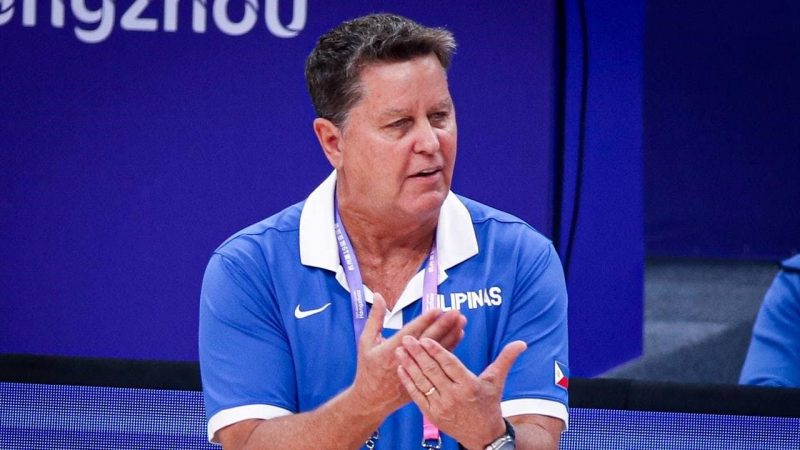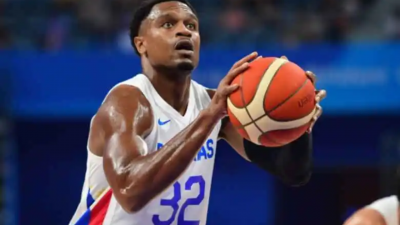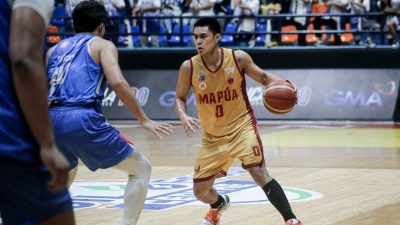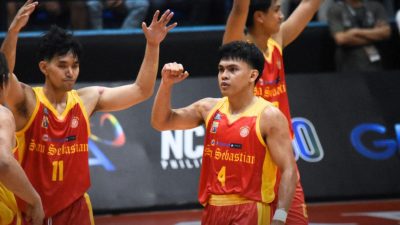MANILA – In the annals of the Philippines’ longest-standing professional basketball league, coach Tim Cone unquestionably holds the title of the most victorious coach.
There is no dispute about that.
Now, he will also be remembered not only for his stellar domestic coaching career but also as the man who successfully led a hastily assembled national squad to conquer seemingly insurmountable odds, ending a 61-year gold medal drought for the Philippines in the Asian Games.
To make this achievement even sweeter, it marks the fulfillment of a mission, erasing his, and nation’s painful memories of a failed attempt 25 years ago during the Bangkok, Thailand edition of the Asiad.
Coach Tim Cone, serving as the interim coach for Gilas Pilipinas, faced numerous challenges in preparing a national team that had only 12 days to train and compete for the 19th Asian Games men’s basketball gold medal.
The team encountered its fair share of difficulties, including the late addition of five new players less than a week before the competition began.
However, Gilas achieved the improbable by defeating the previously undefeated Jordan with a score of 70-60 in the Asian Games men’s basketball final, finally bringing the gold back to the Philippines after a 61-year championship drought.
Reflecting on the journey, Cone shared his thoughts during a post-game interview, stating, “After defeating Iran by a single point and securing that miraculous one-point win over China, we have experienced an indescribable feeling of accomplishment, seemingly emerging from nowhere to win this gold medal. We understand the significance of this victory to Filipino fans who are deeply passionate about basketball. We can’t wait to return home and share this momentous achievement with them.”
Coach Tim Cone, renowned for being the PBA’s all-time winningest coach with 25 championships and counting, entered the tournament as the last coach to have secured a medal for the Philippines.
It was in 1998, during the Bangkok, Thailand edition, that the national squad, known as the Centennial team, brought home the bronze medal.
A quarter of a century (25 years) later, a new group of national players, led by naturalized player Justin Brownlee and supported by June Mar Fajardo, Chris Newsome, Ange Kouame, Scottie Thompson, and Calvin Oftana, exhibited a relentless “never give up” attitude that enabled Gilas Pilipinas to defeat powerhouse teams on their way to the gold.
After a humbling defeat to Jordan, with a score of 87-62 at the end of the group stage, Gilas had to navigate a knockout phase to reach the quarterfinals. The team convincingly dispatched Qatar with a score of 80-41 to advance to the quarterfinals, starting a series of knockout games with great momentum.
Gilas built a double-digit lead before overcoming a formidable fourth-quarter comeback attempt by Iran to secure an 84-83 victory and secure a spot in the semifinals.
In the semifinal knockout match, Gilas faced a 20-point deficit in the first half.
However, Justin Brownlee spearheaded a remarkable second-half comeback, scoring 27 of his game-high 33 points, including the game-winning three-pointer that propelled the national team to a thrilling 77-76 victory against host China.
This victory left the Chinese team stunned, especially considering that just a month prior, the Philippines had defeated them with a score of 96-75 in the 2023 FIBA World Cup classification.
Coach Cone lauded his team’s exceptional defensive performance, which held Jordan to a dismal 18-of-69 field goal shooting in the knockout final game, a mere 26 percent.
He also praised Chris Newsome for his outstanding defensive effort against Jordan’s naturalized player, Rondae Hollis-Jefferson. Newsome, standing at 6 feet 2 inches, had been one of the final cuts from the FIBA World Cup team but proved his worth with 13 points, including two crucial three-pointers.
Following their nail-biting victory over China, the Philippines achieved a historic feat by advancing to the gold medal round for the first time in 33 years.
This achievement was largely attributed to the exceptional performance of naturalized player Justin Brownlee, who delivered an astonishing 27 of his 33 points during the crucial second half.
Reflecting on the miraculous comeback from a 20-point deficit, Coach Cone expressed his amazement, stating, “What a miracle that was; truly, it’s just a miracle. I can’t even imagine it happening that way. The guys just kept battling and battling.”
Cone admitted that he had nearly lost hope when China established an 18-point lead at halftime, saying, “We were losing hope all the way through. At halftime, we were down by 18 points, and we looked at each other with open hands, thinking, ‘Well, we just have to go for it at this point.’ That’s what we meant when we told Justin to just go for it. When he sees an opening, attack, go for it.”
Justin Brownlee heeded the call and played virtually unstoppable throughout the game. Cone remarked, “I lost hope all the way through, until the last 30 seconds or last 23 seconds. I presumed we were going to lose that game, but the good news is, even though I lost hope, the players didn’t, and they kept battling back. They were amazing, and I give credit to them.”
That incredible victory over China pulled the Philippines to within a win or 40 minutes away from ending a 61-year Asian Games basketball title drought.
Standing in the Gilas’ way was Jordan, who defeated the Philippines with an 87-62 score during their group play.
Jordan advanced to the gold medal round with an impeccable record, including convincing victories over Thailand (97-63), Bahrain (84-60), Saudi Arabia (76-57) in the quarterfinals, and Chinese Taipei (90-71) in the semifinals.
This marked Jordan’s first-ever appearance in the Asian Games finals, a significant achievement given their previous best finish of fourth place in 1986 and 2006.
The Philippines, equally determined to break their history of heartbreaks in the Asian Games, entered the gold medal game on the back of a three-game winning streak, which included triumphs over Qatar (80-41), Iran, and China.
They were poised to seize the gold and crown themselves Asian Games champions, a feat last achieved in 1962 when Caloy Loyzaga led the team to glory for the country.
In 1990, the Philippines sent an all-professional national team, coached by Robert Jaworski, with the aim of regaining the country’s basketball supremacy in the Asian Games. However, the team fell short in the final against China, settling for a silver medal.
(Amado Inigo/mnm)







